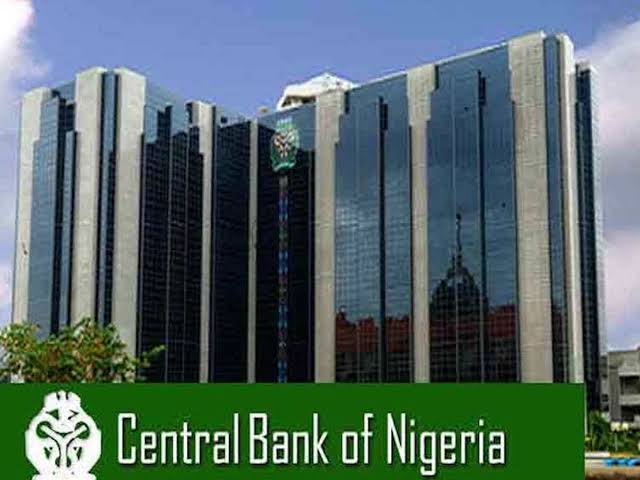FG’s Borrowing Puts CBN’s Price Stability Remit At Risk

With a budget deficit of N5 trillion in 2021 Appropriation Bill, coupled with plans by the Federal Government to spend at least 24 percent of its 2021 N13.58 trillion budget on debt servicing, the Federal Government may resort to borrowing from the Central Bank of Nigeria (CBN).
Like it did in 2020, the Federal Government, according to analysts, may take advantage of the ‘Ways and Means’, a provision in the CBN Act that allows the government to borrow from the apex bank.
The term, ‘Ways and Means’, originated with the Parliament of England and refers to the provision of revenue to meet national expenditure requirements and to implement the objectives of economic policy.
In 2020, the CBN backstopped a total of N2.8 trillion in support loans to the Federal Government.
According to Daily Independent, this followed Federal Government’s failure to meet its revenue targets due to the impact of the fall in oil prices and the COVID-19 pandemic.
During a public presentation of the 2021 budget, Minister of Finance, Budget and National Planning, Zainab Ahmed, said the central bank provided financial support to the tune of N2.8 trillion which the government used to fund its budget expenditure.
According to the minister, “Out of the 2020 budget deficit of N6.1 trillion, N2 trillion was sourced from domestic borrowing and another N1.2 trillion from foreign borrowing. The rest was via ‘Ways and Means’.”
In her presentation, the minister said out of the N5.3 trillion in budgeted revenue, only N3.9 trillion was generated as actual, resulting in a 27% revenue shortfall for the year.
However, in terms of expenditure, while N9.97 trillion was appropriated, N10.08 trillion (representing 101%) was spent during the year.
The shortfall in revenues and increased spending resulted in an actual deficit spending of N6.1 trillion as against N4.6 trillion budgeted during the year.
Nigeria also increased its debt service from N2.9 trillion to N3.2 trillion, interest on ‘Ways and Means’ totalling N912.5 billion contributed significantly to the cost.
The government’s ‘Ways and Means’ financing was first brought to public view in 2016 after the former CBN governor, Sanusi Lamido Sanusi, accused the government of contravening the CBN Act by borrowing more than the required five percent of prior year revenues.
At N2.8 trillion, the CBN basically lent the government 52.8% of its current year revenues or 62.2% of 2019 revenues of N4.5 trillion.
This appears to violate the CBN Act which states that the outstanding amount should not exceed 5% of prior years’ actual revenue.
The provision also requires that the loans are repaid at the end of the year or else the CBN would no longer be able to lend to the government in the following year.
It is unclear if the loans have been repaid or will be repaid prior to the implementation of the 2021 budget.
Analysts see this as threatening the fiscal flexibility of the country of more than 200 million people as “high fiscal deficits are complicating monetary policy”, according to the International Monetary Fund (IMF).
“The interest payments to the Federal Government revenue ratio remained high at about 58% (21% at consolidated government level) while the debt-to-GDP ratio reached 29% of GDP in 2019,” the IMF added.
Nigeria’s debt levels are much lower than those of its peers, and so an increase in the short term should not put the government in danger.
The IMF predicts that Nigeria’s GDP will drop by 4.3% in 2020 before returning to growth of 1.7% in 2021. It projects that growth will then rise to 2.5% for the next few years after that.
President Muhammadu Buhari, while presenting the 2021 spending plan to the National Assembly on October 8, 2020, said: “The 2021 budget deficit (inclusive of government owned enterprises and project-tied loans), is projected at N5.2 trillion. This represents 3.6% of estimated GDP, slightly above the 3% threshold set by the Fiscal Responsibility Act of 2007.”
He added: “It is, however, to be noted that we still face the existential challenge of the coronavirus pandemic and its aftermath.
“I believe that this provides a justification to exceed the threshold as provided for by this law. The deficit will be financed mainly by new borrowings.”
Nigeria’s debt stock stood at N31 trillion on June 30, 2020, according to the Debt Management Office. The new borrowing pushes the debt profile of the cash-strapped government to N35 trillion.
Razia Khan, Chief Economist for Africa and Middle East at Standard Chartered, said: “COVID-19 and weaker oil price will push public debt higher despite reforms. Debt service as a percentage of revenue remains a concern,” Khan said.
“After this year’s economic contraction, Nigeria’s deficit will remain high and debt levels will continue to rise quickly, albeit from a moderate level,” said Aurelien Mali, Moody’s vice-president and senior credit officer.
“The country’s weak institutions and governance framework also constrain the credit profile and have significantly affected both economic growth and the government’s fiscal strength,” he explained.
Daily Independent reported that most analysts have accused the CBN of stepping outside of its remit while not taking ownership of the core responsibilities at the apex bank.
They claimed that the CBN is supposed to be an independent body working to stabilise general price levels, but the CBN has been seen to take orders from the executive while also rehashing old and failed policies from the 1980s when Nigeria’s president was a military head of state.
According to Stephen Iloba, a Lagos-based economist, “The CBN has been trying to play the role of economic support but does not have the capacity or knowledge to follow through on everything it has proposed.
“A regular route for the CBN has been to provide interventions to sectors like the agricultural sector, but these sectors are not delivering impact.
“The agricultural sector is still struggling while the funds and the policies the CBN has been looking to provide are not good or enough.
“The CBN policies do not support fighting inflation despite inflation being one of the biggest problems Nigeria has had.
“For example, we have a CBN that is giving money to the Federal Government and farmers to spend. Theoretically, the CBN should be looking to tighten liquidity.
“By lending to the Federal Government and farmers, the policy is not only inconsistent and very performative, but it also betrays its own policy goals,”
Adedayo Bakare, a Lagos-based economist with Afrinvest, said.
Pushing more money to the Federal Government, according to Cyril Ampka, an Abuja-based economist, “will lead to a spike in inflation”.
The National Bureau of Statistics (NBS) inflation numbers for December, which came in at 15.75 percent much higher than the 14.89 percent recorded in November, reflects a historical trend in which inflation rate is elevated during this month owing to the demand pressure associated with the yuletide period.
To Prof. Uche Uwaleke of the Nasarawa State University, “The inflation rate for December 2020 in particular was exacerbated by the lingering effects of border closure, increase in VAT, electricity tariffs, and the pump price of fuel.
“Insecurity may also have accounted for why the food inflation was highest in a state like Edo.”





